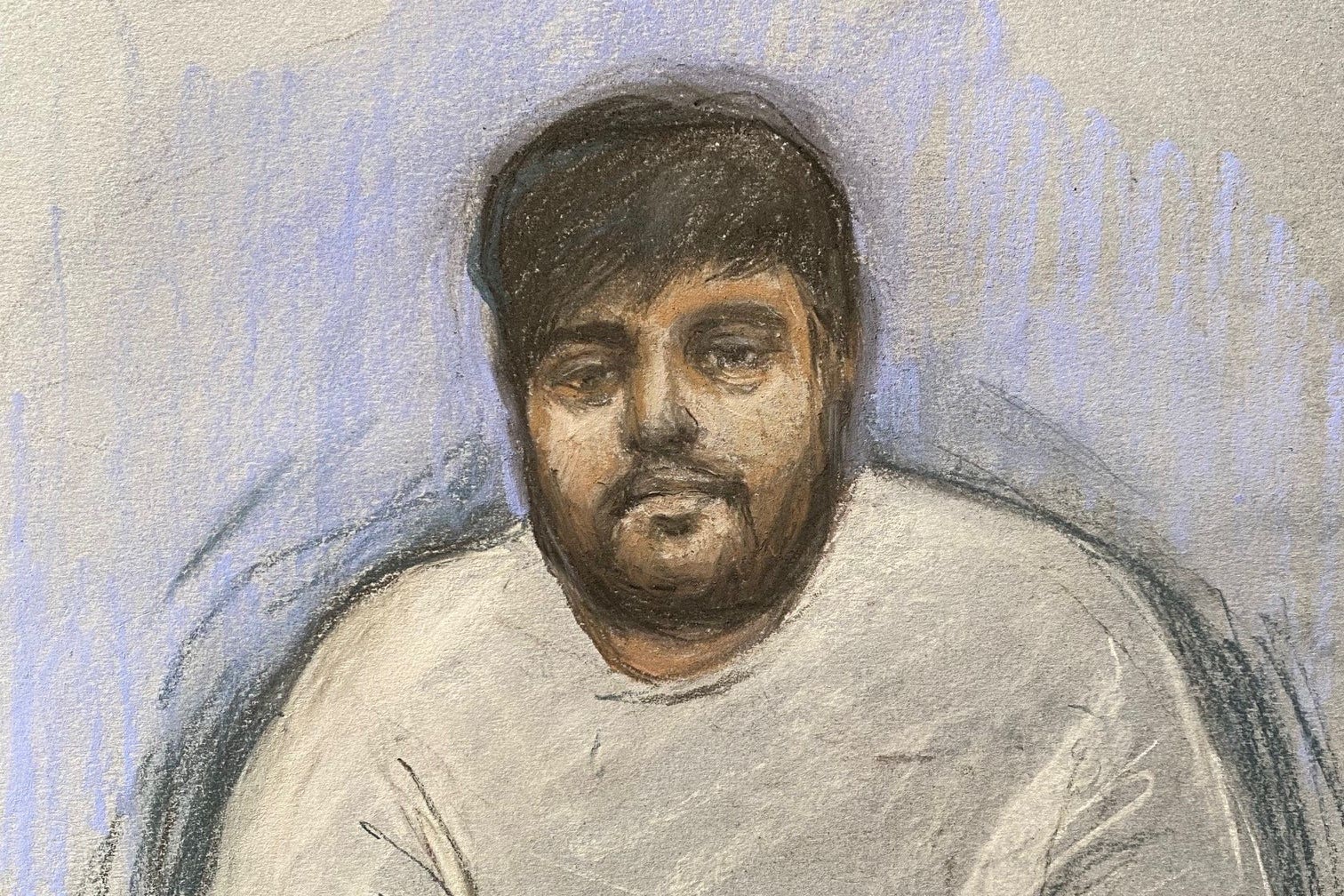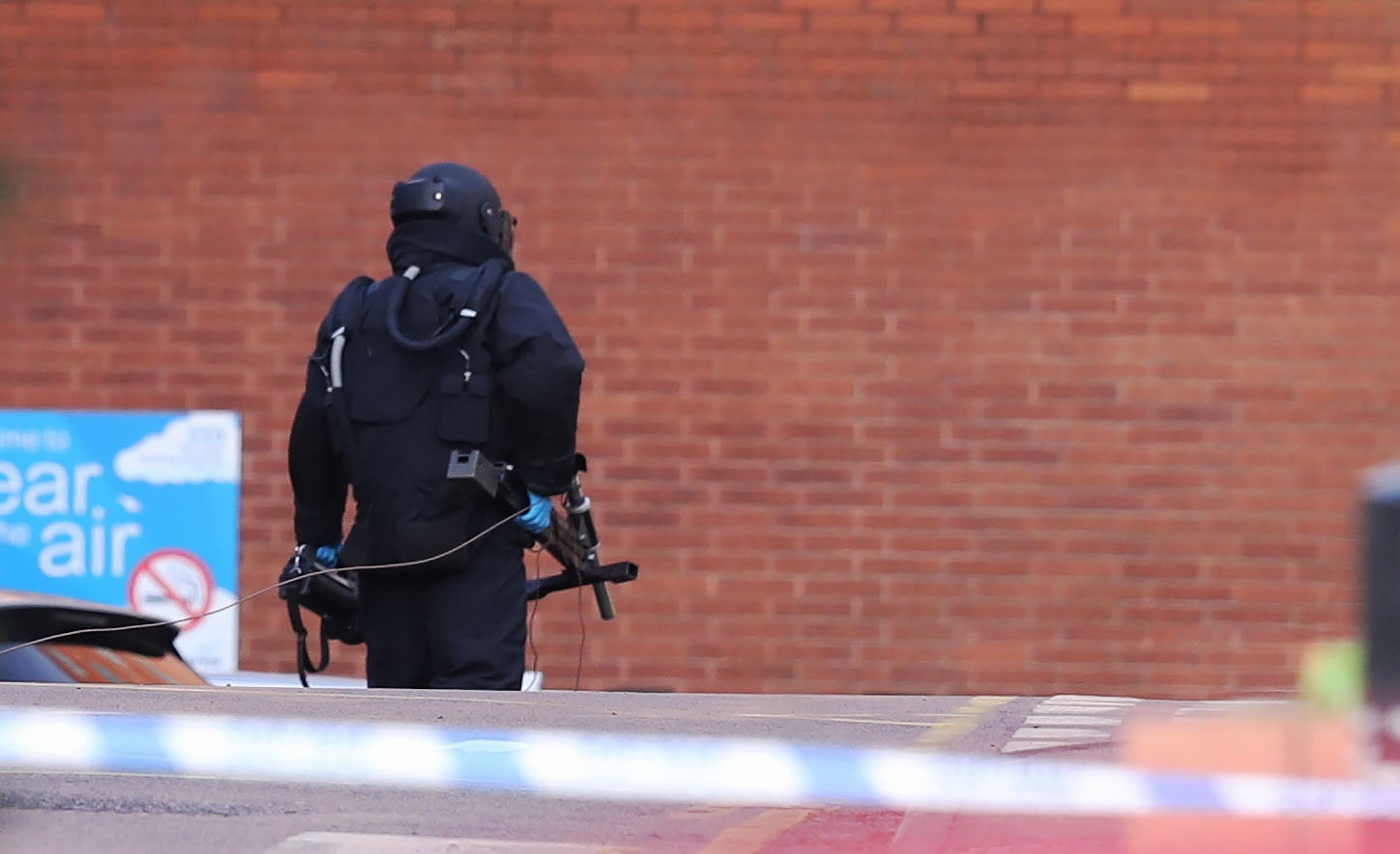‘Terrorist’ talked down from hospital bomb plot by patient’s act of kindness, trial told
Mohammad Farooq had planned to ‘kill as many nurses as possible’ when he was arrested outside St James’s Hospital in Leeds, jurors were told.

An alleged “self-radicalised, lone wolf terrorist” was stopped from detonating a bomb outside a hospital by a patient who was happening to have a cigarette at the time, prosecutors have told a jury.
Mohammad Farooq, 28, had planned to “kill as many nurses as possible” when he was arrested with a pressure cooker bomb outside the Gledhow Wing of St James’s Hospital in Leeds, in the early hours of January 20.
Prosecutors say Farooq planned to “seek his own martyrdom” through a “murderous terrorist attack” by detonating the bomb, then killing as many people as possible with knives before using an imitation firearm to incite police to shoot him dead.
Opening the trial on Monday, Jonathan Sandiford KC said Farooq had immersed himself in an “extremist Islamic ideology” and that his “plan A” had been to attack RAF Menwith Hill, which is a base in North Yorkshire used by the United States.
“When he thought that was not possible, his ‘plan B’ was to attack St James Hospital, a softer and less well-protected target than a military base,” Mr Sandiford said.
Farooq was a clinical support worker at the hospital and his “secondary motive” for choosing it as a target was that he had a grievance against several of his former colleagues and had been conducting a poison pen campaign against them, Sheffield Crown Court jurors were told.
He later told police his device was intended to be twice as powerful as that used by the Boston Marathon bombers in 2013.
Mr Sandiford said “two pieces of good fortune intervened” to stop the attack that day.

The first was that a bomb threat he sent in a text to an off-duty nurse in order to lure people to the car park where he was waiting with the bomb was not seen for almost an hour, and the full-scale evacuation he had hoped for did not happen.
The prosecutor said Farooq left but returned shortly afterwards with a new plan to wait in a hospital cafe for a staff shift change and detonate his device, “killing as many nurses as possible”.
But Mr Sandiford told the court that “luck intervened again” because a patient, Nathan Newby, was standing outside the hospital having a cigarette and “noticed the defendant”.
He said: “Mr Newby realised something was amiss and began to talk to him instead of walking away.
“That simple act of kindness almost certainly saved many lives that night because, as the defendant was later to tell the police officers who arrested him, Mr Newby succeeded in ‘talking him down’.”
Mr Sandiford said the defendant told Mr Newby about his plan to take the bomb into the hospital and “kill as many nurses as possible”.

He said: “Mr Newby stayed with the defendant, keeping him engaged and calm.
“Mr Newby also persuaded the defendant to move away from the main entrance to a seating area so that the IED was as far away from the building as it was possible to go.”
Jurors heard Farooq then handed his phone over to Mr Newby to ring the police.
The defendant was arrested by officers who found the “viable” pressure cooker bomb had just under 10 kilograms of low explosive. He also had, with him or in his car, two knives, black tape and a blank-firing, imitation firearm
An investigation found Farooq had become self-radicalised by accessing extremist material and propaganda online.
“That consisted mainly of material published by Islamic State, al Qaida, videos on TikTok and lectures by Anwar Al-Awlaki, the Yemeni-American radical preacher,” Mr Sandiford said.
The court heard he had also obtained bomb-making instructions in a magazine published by al Qaida to encourage lone wolf terrorist attacks against the west.
The prosecutor said RAF Menwith Hill had been designated as a target by so-called Islamic State because it was believed the base had been used to co-ordinate drone strikes against terrorists.
Movements of the defendant’s mobile phone and car showed that he made at least two visits to the locality of Menwith Hill in the 10 days leading up to his arrest, jurors were told.
Prosecutors said material found on Farooq’s phone suggested “he may have been susceptible to the messages of radicalisation because he had a low sense of self-esteem and felt unwanted, worthless and alone”.
The court heard Farooq has admitted firearms offences, possessing an explosive substance with intent and having a document likely to be useful to a person preparing or committing an act of terrorism.
He denies preparing acts of terrorism. Mr Sandiford said the defendant admits intending to attack St James’s Hospital but denies any intention to attack Menwith Hill.
In his interviews with police, Farooq said he had taken the bomb with him to Menwith Hill on January 10 and 18 but said he had “no terrorist intention” and had travelled there because he liked to drive around that area of North Yorkshire.
In his short opening remarks to jurors, Gul Nawaz Hussain KC, representing Farooq, said the defendant was not radicalised and that his actions were due to a “deep rooted yet unjustifiable anger and grievance towards those he worked with”.
The trial continues.
